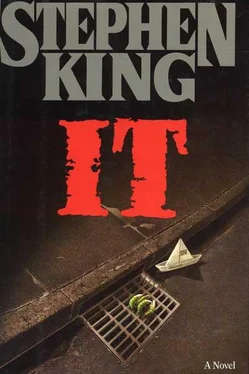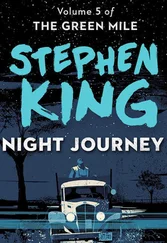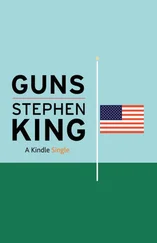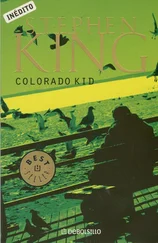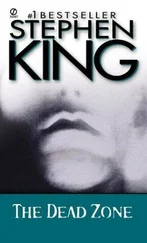Stephen King - It
Здесь есть возможность читать онлайн «Stephen King - It» весь текст электронной книги совершенно бесплатно (целиком полную версию без сокращений). В некоторых случаях можно слушать аудио, скачать через торрент в формате fb2 и присутствует краткое содержание. Год выпуска: 1986, Жанр: Ужасы и Мистика, на английском языке. Описание произведения, (предисловие) а так же отзывы посетителей доступны на портале библиотеки ЛибКат.
- Название:It
- Автор:
- Жанр:
- Год:1986
- ISBN:нет данных
- Рейтинг книги:4.33 / 5. Голосов: 3
-
Избранное:Добавить в избранное
- Отзывы:
-
Ваша оценка:
- 80
- 1
- 2
- 3
- 4
- 5
It: краткое содержание, описание и аннотация
Предлагаем к чтению аннотацию, описание, краткое содержание или предисловие (зависит от того, что написал сам автор книги «It»). Если вы не нашли необходимую информацию о книге — напишите в комментариях, мы постараемся отыскать её.
It — читать онлайн бесплатно полную книгу (весь текст) целиком
Ниже представлен текст книги, разбитый по страницам. Система сохранения места последней прочитанной страницы, позволяет с удобством читать онлайн бесплатно книгу «It», без необходимости каждый раз заново искать на чём Вы остановились. Поставьте закладку, и сможете в любой момент перейти на страницу, на которой закончили чтение.
Интервал:
Закладка:
Bill turned onto Neibolt Street, coasted to the sidewalk, and put his foot back down. “Let’s w-w-walk from here.”
Richie slipped off the package carrier with mingled feelings of relief and regret. “Okay.”
They walked along the sidewalk, which was cracked and weedy. Up ahead of them, in the trainyards, a diesel engine revved slowly up, faded off, and then began all over again. Once or twice they heard the metallic music of couplings being smashed together.
“You scared?” Richie asked Bill.
Bill, walking Silver by the handlebars, looked over at Richie briefly and then nodded. “Y-Yeah. You?”
“I sure am,” Richie said.
Bill told Richie he had asked his father about Neibolt Street the night before. His father said that a lot of trainmen had lived out this way until the end of World War II-engineers, conductors, signalmen, yardworkers, baggage handlers. The street had declined with the trainyards, and as Bill and Richie moved farther along it, the houses became farther apart, seedier, dirtier. The last three or four on both sides were empty and boarded up, their yards overgrown. A FOR SALE sign flapped forlornly from the porch of one. To Richie the sign looked about a thousand years old. The sidewalk stopped, and now they were walking along a beaten track from which weeds grew half-heartedly.
Bill stopped and pointed. “Th-there it i-i-is,” he said softly.
Twenty-nine Neibolt Street had once been a trim red Cape Cod. Maybe,.Richie thought, an engineer used to live there, a bachelor with no pants but jeans and lots of those gloves with the big stiff cuffs and four or five pillowtick caps-a fellow who would come home once or twice a month for stretches of three or four days and listen to the radio while he pottered in the garden; a fellow who would eat mostly fried foods (and no vegetables, although he would grow them for his friends) and who would, on windy nights, think about the Girl He Left Behind.
Now the red paint had faded to a wishy-washy pink that was peeling away in ugly patches that looked like sores. The windows were blind eyes, boarded up. Most of the shingles were gone. Weeds grew rankly down both sides of the house and the lawn was covered with the season’s first bumper crop of dandelions. To the left, a high board fence, perhaps once a neat white but now faded to a dull gray that almost matched the lowering sky, lurched drunkenly in and out of the dank shrubbery. About halfway down this fence Richie could see a monstrous grove of sunflowers-the tallest looked five feet tall or more. They had a bloated, nasty look he didn’t like. A breeze rustled them and they seemed to nod together: The boys are here, isn’t that nice? More boys. Our boys. Richie shivered.
While Bill leaned Silver carefully against an elm, Richie surveyed the house. He saw a wheel sticking out of the thick grass near the porch, and pointed it out to Bill. Bill nodded; it was the overturned trike Eddie had mentioned.
They looked up and down Neibolt Street. The chug of the diesel engine rose and fell off, then began again. The sound seemed to hang in the overcast like a charm. The street was utterly deserted. Richie could hear occasional cars passing on Route 2, but could not see them.
The diesel engine chugged and faded, chugged and faded.
The huge sunflowers nodded sagely together. Fresh boys. Good boys. Our boys.
“Y-Y-You r-ruh-ready?” Bill asked, and Richie jumped a little.
“You know, I was just thinking that maybe the last bunch of library books I took out are due today,” Richie said. “Maybe I ought to-”
“Cuh-Cuh-Cut the c-crap, R-R-Richie. Are y-you ready or n-n-not?”
“I guess I am,” Richie said, knowing he was not ready at all-he was never going to be ready for this scene.
They crossed the overgrown lawn to the porch.
“Luh-look th-th-there,” Bill said.
At the far lefthand side, the porch’s latticework skirt leaned out against a tangle of bushes. Both boys could see the rusty nails that had been pulled free. There were old rosebushes here, and while the roses both to the right and the left of the unanchored stretch of latticework were blooming in a lackadaisical way, those directly around and in front of it were skeletal and dead.
Bill and Richie looked at each other grimly. Everything Eddie said seemed true enough; seven weeks later, the evidence was still here.
“You don’t really want to go under there, do you?” Richie asked. He was almost pleading.
“Nuh-nuh-no,” Bill said, “b-but I’m g-gonna.”
And with a sinking heart, Richie saw that he absolutely meant it. That gray light was back in Billy’s eyes, shining steadily. There was a stony eagerness in the lines of his face that made him look older. Richie thought, I think he really does mean to kill it, if it’s still there. Kill it and maybe cut off its head and take it to his father and say, “Look, this is what killed Georgie, now will you talk to me again at night, maybe just tell me how your day was, or who lost when you guys were flipping to see who paid for the morning coffee?”
“Bill-” he said, but Bill was no longer there. He was walking around to the righthand end of the porch, where Eddie must have crawled under. Richie had to chase after him, and he almost fell over the trike caught in the weeds and slowly rusting its way into the ground.
He caught up as Bill squatted, looking under the porch. There was no skirt at all on this end; someone-some hobo-had pried it off long ago to gain access to the shelter underneath, out of the January snow or the cold November rain or a summer thundershower.
Richie squatted beside him, his heart thudding like a drum. There was nothing under the porch but drifts of moldering leaves, yellowing newspapers, and shadows. Too many shadows.
“Bill,” he repeated.
“Wh-wh-what?” Bill had produced his father’s Walther again. He pulled the clip carefully from the grip, and then took four bullets from his pants pocket. He loaded them in one at a tune. Richie watched this, fascinated, and then looked under the porch again. He saw something else this tune. Broken glass. Faintly glinting shards of glass. His stomach cramped painfully. He was not a stupid boy, and he understood this came close to completely confirming Eddie’s story. Splinters of glass on the moldering leaves under the porch meant that the window had been broken from inside. From the cellar.
“Wh-what?” Bill asked again, looking up at Richie. His face was grim and white. Looking at that set face, Richie mentally threw in the towel.
“Nothing,” he said.
“You cuh-cuh-homing?”
“Yeah.”
They crawled under the porch.
The smell of decaying leaves was a smell Richie usually liked, but there was nothing pleasant about the smell under here. The leaves felt spongy under his hands and knees, and he had an impression that they might go down for two or three feet. He suddenly wondered what he would do if a hand or a claw sprang out of those leaves and seized him.
Bill was examining the broken window. Glass had sprayed everywhere. The wooden strip which had been between the panes lay in two splintered pieces under the porch steps. The top of the window frame jutted out like a broken bone.
“Something hit that fucker wicked hard,” Richie breathed. Bill, now peering inside-or trying to-nodded.
Richie elbowed him aside enough so he could look, too. The basement was a dim litter of crates and boxes. The floor was earth and, like the leaves, it gave off a damp and humid aroma. A furnace bulked to the left, thrusting round pipes at the low ceiling. Beyond it, at the end of the cellar, Richie could see a large stall with wooden sides. A horse stall was his first thought, but who kept horses in the jeezly cellar? Then he realized that in a house as old as this one, the furnace must have burned coal instead of oil. Nobody had bothered to convert the furnace because no one wanted the house. That thing with the sides was a coalbin. To the far right, Richie could make out a flight of stairs going up to ground level.
Читать дальшеИнтервал:
Закладка:
Похожие книги на «It»
Представляем Вашему вниманию похожие книги на «It» списком для выбора. Мы отобрали схожую по названию и смыслу литературу в надежде предоставить читателям больше вариантов отыскать новые, интересные, ещё непрочитанные произведения.
Обсуждение, отзывы о книге «It» и просто собственные мнения читателей. Оставьте ваши комментарии, напишите, что Вы думаете о произведении, его смысле или главных героях. Укажите что конкретно понравилось, а что нет, и почему Вы так считаете.
